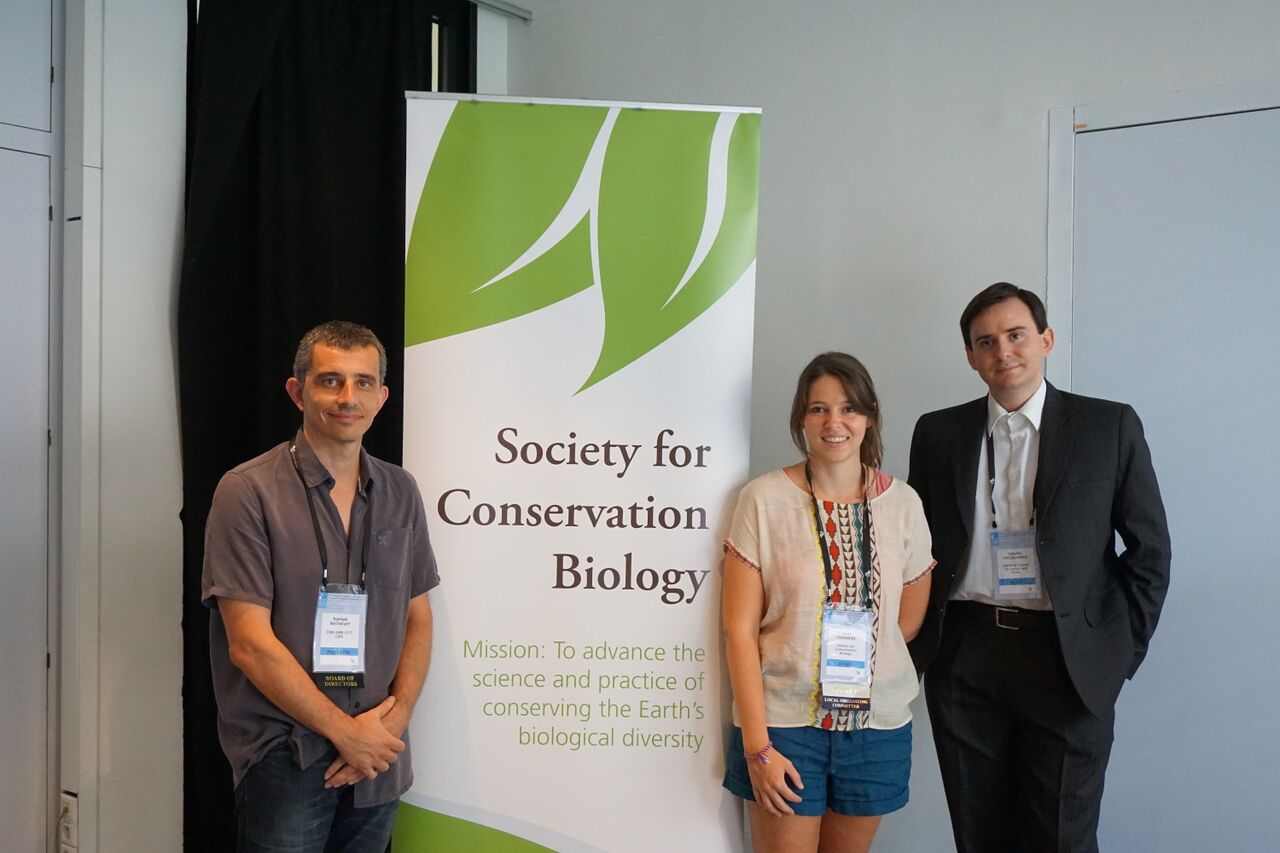Religion and Conservation Biology Working Group: Distilling Empirical Evidence to Further the Synergy of Faiths and Conservation
By Fabrizio Frascaroli
|
Holy See, Mr. Tebaldo Vinciguerra (right), of the Pontifical Council for Justice and Peace at ICCB-ECCB 2015. |
The release of Pope Francis’ teaching on “integral ecology”, the encyclical Laudato si’, has arguably been one of the highlights of the year. Media worldwide anticipated the event with trepidation having never accorded to a theological document before – and possibly never again. Activists saluted the positions taken by the Pontifex on environmental issues and His non-negotiable condemnation of their socio-economic drivers. Climate change negationists spearheaded the reaction, hurrying to defend politics’ “right to independence” from religious morals. Casual observers stood baffled by as the doors of the Vatican opened wide to the likes of Naomi Klein. Commentaries sprawled, and the sensation to be attending history in the making caressed many of us, as we were reminded of the moral ascendant of the Pope on some 1.2 billion Catholics and decision-makers around the world.
Four months later, much of the hype has worn out and the encyclical no longer hits the news. It might seem sobering at first, but this natural parable of bursting vigor and autumnal recoil rather carries an important reminder for the practice of conservation: statements from charismatic leaders are fundamental, but if not followed by a systematic effort of translation into practice, they can hardly produce the long-term changes we hope for. It is even possible that Pope Francis’ message marks a major watershed in the dialogue between faiths and conservation. By now, virtually every world religion and countless indigenous traditions have taken official and unequivocal stances on the environment. The question is no longer whether there are common interests for faiths and conservation to work together. The question is how this can most effectively be done, and what conditions are likelier to favor success.
These and similar issues were addressed in two joined sessions organized by the Religion and Conservation Biology Working Group (RCBWG) of SCB at the ICCB-ECCB in Montpellier, France. Some of the speakers showcased examples of conservation achieved by or in collaboration with faith communities. Others engaged in an open discussion which also involved a representative from the Pontifical Council for Justice and Peace (PCJP) of the Holy See, Mr. Tebaldo Vinciguerra, who courteously responded to the RCBWG’s invitation. Most participants in the discussion stressed the importance of finding a common vocabulary between faith and conservation. This need of negotiating with different ways of knowing is probably one of the main challenges in building partnerships: both science and religion strive to explain the universe in their own terms, and the prospect of yielding a claimed truth or sharing power might not always be easy. Yet, it was pointed out, as conservationists we engage with a range of stakeholders, with whom we do not necessarily have much in common, except some specific goals. Working with faiths should not be any different: rather than pretending to agree on everything or trying to impose one claim of truth over another, successful collaborations can be achieved by establishing common ground around clear issues and sets of objectives.
The RCBWG works to reinforce similar insights within the practice of conservation, and advocates the collection of empirical evidence to shed light on the limits and benefits of faith-conservation partnerships to date. The RCBWG is not the club of religious people within SCB, but a group of scientists and practitioners, some believers others not, who are convinced that conservation cannot miss to involve some of the most numerous and influential stakeholder groups around the world: faith communities. Dialogue with faiths might be tougher than with other partners, but carries the promise of great rewards and, as the ongoing conversation between the RCBWG and the PCJP testifies, the benefit of earnest and often attentive interlocutors.
